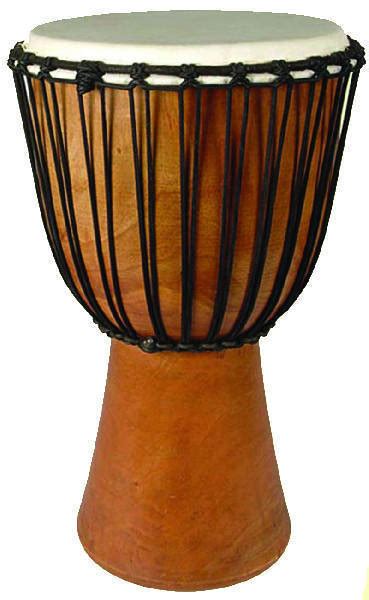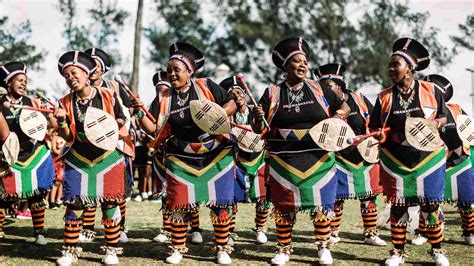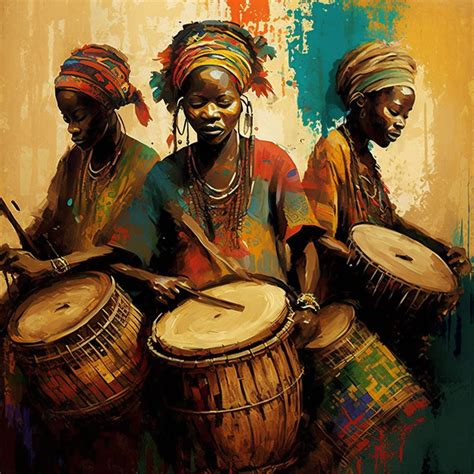African music heritage is a rich and diverse tapestry, woven from the threads of various cultures, traditions, and historical periods. The continent's musical landscape is characterized by a wide range of genres, styles, and instruments, each with its unique sound, rhythm, and cultural significance. From the energetic rhythms of Afrobeat to the soulful melodies of Highlife, African music has played a vital role in shaping the continent's identity, fostering social cohesion, and promoting cultural exchange. With a history dating back thousands of years, African music has evolved over time, influenced by various factors such as trade, migration, and colonization, resulting in a vibrant and dynamic musical heritage that continues to inspire and captivate audiences worldwide.
The origins of African music can be traced back to ancient civilizations, where music played a central role in religious rituals, social ceremonies, and storytelling. The use of drums, xylophones, and other percussion instruments was prevalent, and music was often used to communicate with ancestors, spirits, and the divine. As African societies evolved, so did their music, with the introduction of new instruments, styles, and genres. The trans-Saharan trade, for example, introduced Islamic and Arabic musical influences, while the transatlantic slave trade brought African music to the Americas, where it merged with European and indigenous musical traditions to create new genres such as jazz, blues, and salsa.
Key Points
- African music heritage is characterized by diversity and richness, with various genres, styles, and instruments.
- The history of African music dates back thousands of years, with influences from trade, migration, and colonization.
- African music has played a vital role in shaping the continent's identity, fostering social cohesion, and promoting cultural exchange.
- The use of drums, xylophones, and other percussion instruments is prevalent in African music, with roots in ancient civilizations.
- African music has evolved over time, with the introduction of new instruments, styles, and genres, resulting in a vibrant and dynamic musical heritage.
African Music Genres and Styles

African music encompasses a wide range of genres and styles, each with its unique sound, rhythm, and cultural significance. Some of the most popular genres include Afrobeat, Highlife, Juju, Fuji, and Mbira. Afrobeat, for example, is a genre that originated in Nigeria in the 1960s, characterized by its energetic rhythms, horn sections, and socially conscious lyrics. Highlife, on the other hand, is a genre that emerged in Ghana in the 1920s, known for its soulful melodies, guitar riffs, and jazz influences. Juju, a genre from Nigeria, is characterized by its fast-paced rhythms, percussion instruments, and Yoruba language lyrics.
Traditional African Instruments
Traditional African instruments play a vital role in the continent’s musical heritage, with each instrument having its unique sound, cultural significance, and historical context. The djembe, for example, is a rope-tuned goblet drum originating from West Africa, used in various genres such as Afrobeat and Highlife. The kora, a 21-stringed instrument from West Africa, is used in genres such as Mbalax and Juju, known for its rich, resonant sound and complex playing techniques. The mbira, a thumb piano from Southern Africa, is used in genres such as Chimurenga and Mbira, characterized by its bright, ringing sound and intricate playing patterns.
| Instrument | Origin | Genre |
|---|---|---|
| Djembe | West Africa | Afrobeat, Highlife |
| Kora | West Africa | Mbalax, Juju |
| Mbira | Southern Africa | Chimurenga, Mbira |

African Music in the Modern Era

African music has undergone significant changes in the modern era, with the advent of technology, globalization, and social media. The internet has democratized music production and distribution, allowing African artists to reach a global audience and gain international recognition. Genres such as Afrobeats, Afrohouse, and Amapiano have gained popularity worldwide, with artists such as Wizkid, Davido, and Tiwa Savage achieving international success. However, the modern era has also brought challenges, such as cultural appropriation, piracy, and the erosion of traditional music practices.
Challenges and Opportunities
African music faces several challenges in the modern era, including cultural appropriation, piracy, and the erosion of traditional music practices. However, there are also opportunities for African music to thrive, such as the growth of the African music industry, the rise of new genres and styles, and the increasing recognition of African music’s cultural significance. The African music industry has experienced significant growth in recent years, with the rise of streaming platforms, music festivals, and concerts. New genres and styles have emerged, such as Afrotrap and Afrobeats, which have gained popularity worldwide.
What is the significance of African music in modern times?
+African music plays a vital role in modern times, promoting cultural exchange, fostering social cohesion, and providing a platform for self-expression and identity.
How has technology impacted African music?
+Technology has democratized music production and distribution, allowing African artists to reach a global audience and gain international recognition. However, it has also brought challenges such as cultural appropriation and piracy.
What are the opportunities and challenges facing African music in the modern era?
+The opportunities include the growth of the African music industry, the rise of new genres and styles, and the increasing recognition of African music's cultural significance. The challenges include cultural appropriation, piracy, and the erosion of traditional music practices.
In conclusion, African music heritage is a rich and diverse tapestry, woven from the threads of various cultures, traditions, and historical periods. The continent’s musical landscape is characterized by a wide range of genres, styles, and instruments, each with its unique sound, rhythm, and cultural significance. As African music continues to evolve and thrive in the modern era, it is essential to recognize its cultural significance, promote its preservation, and support its development, ensuring that the continent’s musical heritage continues to inspire and captivate audiences worldwide.



